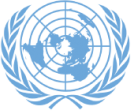In recent years, addressing the challenges posed by climate change and finding ways to adapt and mitigate its negative impacts have become crucial priorities for global sustainable development, including our country.
Uzbekistan, being one of the lands most vulnerable to climate change, has consistently highlighted these issues at various international and regional summits. The drying up of the Aral Sea, desertification, land degradation, changing temperatures, and the increasing frequency of natural disasters are all pressing concerns that demand immediate attention. These environmental changes have far-reaching consequences for our ecosystems, economy, and the well-being of our people.
This explains the active participation of the Uzbek delegation in the events of the Conference of the Parties to the United Nations Framework Convention on Climate Change (UNFCCC) (COP-28) held from 28 November to 12 December in Dubai, which was headed by the President of Uzbekistan for the first time. This once again confirmed the enormous significance and importance of the climate agenda for the republic.
At the same time, speaking at COP-28 these days, the Head of our state Shavkat Mirziyoyev, from a high rostrum, did not just point to the negative climate trends in the Central Asian region, but proposed a number of practical initiatives aimed at reducing the consequences of global climate change.
The impact of climate change on Central Asia
Despite contributing only 2% of global greenhouse gas emissions, Central Asia is one of the most vulnerable regions to climate change. The International Monetary Fund reports that Central Asia's rate of "heating" exceeds global indicators by 2 times. Over the past 30 years, the temperature in the region has increased by 1.5 degrees Celsius, compared to the global average of 0.7 degrees.
This warming trend is particularly evident in the glacier zone of Central Asia, where glacier size has decreased by almost 30% since the 1980s. As a result, water supply per capita is rapidly declining, exacerbating the region's vulnerability. In fact, Central Asian countries are classified as "insufficiently provided" in terms of water resources. In the international classification, the Central Asian countries are on the threshold of the category of "insufficiently provided" with water resources.
If this trend continues, by 2050, the reduction in water resources in the basins of the Amu Darya and Syr Darya rivers could lead to an 11% drop in regional GDP. Moreover, changing climatic conditions can significantly impact the likelihood and frequency of emergencies, posing a new economic challenge.
According to the World Bank, natural disasters such as earthquakes, landslides, floods, mudslides, droughts, avalanches, and extreme temperatures already affect approximately 3 million people annually in Central Asia, costing the region $10 billion.
The vulnerability of Central Asia to climate change highlights the urgent need for mitigation and adaptation measures to protect the region's environment, economy, and population. By 2050, around 2.4 million people in the region might have to relocate to areas that are less vulnerable to the impacts of climate change. Additionally, water scarcity, energy concerns, and food security issues could potentially lead to tensions among Central Asian countries.
Given these circumstances, Uzbekistan has made it a top priority to address the challenges posed by climate change. The country is actively taking measures to minimize the consequences of global warming through comprehensive and integrated approaches.
Tashkent's efforts at the national level
Uzbekistan has made significant strides in transitioning to a "green" economy and reducing greenhouse gas emissions. In 2017, the country became a party to the Paris Agreement, and in 2019, it developed a Strategy for the transition to a "green" economy for the period 2019-2030. One of the main objectives of this strategy is to increase energy efficiency and promote rational consumption of natural resources.
To further its commitment, Uzbekistan signed an Updated National Plan to Reduce Greenhouse Gas Emissions in 2021. This plan aims to achieve a 35% reduction in CO2 emissions per unit of GDP by 2030 compared to the 2010 levels.
In 2021, the country launched its first solar photovoltaic plant (PV system) in Navoi, which is one of the largest in Central Asia. By December 2023, five additional PV systems – in Samarkand, Jizzakh, Surkhandarya, Bukhara and Kashkadarya regions, and a wind power plant (WPP) in Navoi were connected to the grid.
Uzbekistan is also collaborating with foreign companies from Saudi Arabia, the United Arab Emirates, China, France, and Switzerland on 12 projects for the construction of "green" power plants and energy storage systems. The goal is to increase the total capacity of solar and wind power plants to 2.6 gigawatts and 900 megawatts, respectively, by 2024. Additionally, energy storage devices with a capacity of 400 megawatts will be launched.
The country has taken its first steps towards producing "green" hydrogen, with production already underway in the Tashkent region. The plan is to increase the production of renewable electricity to 40% by 2030.
Uzbekistan is also actively working on adapting to climate change. It has completed 15 projects under the Clean Development Mechanism of the Kyoto Protocol and introduced water-saving technologies on 27% of agricultural land areas. By 2030, the country aims to plant 26.2 thousand hectares of protective forest plantations and cultivate high-yielding crop varieties resistant to low water and drought.
Efforts are also being made to mitigate the effects of the drying up of the Aral Sea. Successful forest plantations covering 2 million hectares on the drained bottom have helped reduce air pollution in the Aral Sea region. The goal is to develop an additional 600 thousand hectares of green areas by 2030, covering 80% of the territory of the Aral Sea.
Regional and international cooperation of Uzbekistan in the fight against climate change
Uzbekistan is actively promoting climate initiatives in Central Asia, aiming to unite the region in taking action against climate change. These efforts have gained support from neighboring countries, highlighting the importance of collaboration in addressing this global challenge.
Thus, one significant initiative is the Regional Program "Green Agenda" for Central Asia, which was introduced during the 3rd Consultative Meeting of Heads of State. This program has been positively received and then was adopted by all participating countries at the 4th Consultative Meeting of Heads of State, which marks a milestone in the region's unified climate agenda.
Building on this momentum, Uzbekistan proposed the development of a Regional strategy on climate change adaptation during a 5th Consultative Meeting of Heads of State. In addition, the head of Uzbekistan proposed to establish a multilateral platform "Central Asian climate Dialogue" at the level of ministers of ecology, which would serve as an integrating link for Central Asian countries in their pursuit of sustainable and environmentally friendly development.
Uzbekistan also actively engages in multilateral international platforms to address climate issues. For instance, during the October BRI forum, President Shavkat Mirziyoyev proposed the development of a "green" development program and the creation of a fund for "green" financing. These initiatives aim to transform and digitalize economic sectors, fostering a low-carbon economy and the adoption of clean technologies.
Furthermore, at the Central Asian countries and Gulf Cooperation Council (GCC) summit, the head of state pointed out the importance of implementing joint projects in the segment of "green" energy.
In a powerful address at the UN Climate Change Conference, President Shavkat Mirziyoyev passionately called upon the international community to take immediate action and shoulder the collective responsibility in combating the pressing issue of climate change. Standing on the podium, he emphasized the need for ongoing discussions on global warming, urging the inclusion of these discussions within the G7 and G20 summits.
President Shavkat Mirziyoyev also called for the early coordination of the Global Climate Change Adaptation Framework within the framework of the Paris Agreement.
The Head of the State stressed the importance of adaptation measures in overcoming the current and future impacts of climate change. He noted during his speech, this process "must be fair, transparent and inclusive", "it is necessary to take into account the interests of developing countries" that face problems of insufficient financing, limited access to technology and knowledge.
At the same time, attracting advanced technologies and supporting capacity-building are essential for building a sustainable and prosperous future. To this end, President Shavkat Mirziyoyev proposed the establishment of an International Expo hub for climate technologies in the region. This hub would serve as a platform for showcasing and exchanging innovative solutions.
Furthermore, he suggested the creation of a Climate Science Forum at Central Asian University of environment and climate change studies in Tashkent. This forum would facilitate collaborative research, bringing together leading scientists and experts from around the world.
At the same time, the president announced a proposal to hold two major international events in Uzbekistan in 2024.
First. To hold a conference on "Climate migration" in collaboration with the United Nations. This is particularly crucial considering the adverse climatic conditions that are forcing people to relocate across the globe, potentially leading to resource scarcity, increased job competition, and social tensions. According to estimates from the World Bank, by 2050, approximately 216 million people in six regions of the world could become "climate refugees."
Given this alarming fact, the event will serve as a platform for comprehensive discussions on effective strategies and long-term solutions to mitigate the future consequences of climate migration.
Second. To organize a COP Youth Conference aimed at enhancing the environmental awareness and engagement of young people.
This initiative aligns with the UN Youth 2030 Strategy, which prioritizes the meaningful involvement of young individuals in policy-making and decision-making processes concerning environmental safety issues.
In my opinion, it is the youth, the future generation, that should be considered as the «social group» most interested in slowing down climate change, which, on the one hand, will attract the most indifferent to the issue, on the other hand, will ensure a fair and inclusive decision-making process.
In conclusion, Uzbekistan's commitment to the climate agenda demonstrates our country's willingness to shoulder responsibility in addressing global challenges.
The initiatives proposed by President Shavkat Mirziyoyev underscore the need for political will, collaboration, and compromise to effectively combat the irreversible climate processes on our planet. Consequently, the leader of Uzbekistan has called for the consolidation of efforts not only within the Central Asian region but also across the entire international community in the fight against climate change.
By emphasizing the role of the youth and advocating for global cooperation, Uzbekistan is taking significant steps towards a sustainable future. These efforts reflect our country's recognition of the urgency and magnitude of the climate crisis, as well as its commitment to finding collective solutions.
Kamila Sabirova,
leading research fellow
at Institute for Strategic and Regional Studies
under the President of the Republic of Uzbekistan


